COMMENT | The recent furore over the appointment of Latheefa Koya as MACC chief by Prime Minister Dr Mahathir Mohamad demonstrates that all is not well in the ruling coalition.
Their problems began with the formation of the cabinet, where senior positions were decided on the basis of the prime minister's prerogative and not entirely with the happy concurrence of all coalition members.
The setting up of the Council of Eminent Persons (CEP) with Daim Zainuddin at the helm surprised some coalition members as it appeared to usurp the functions and authority of the cabinet.
The justification for the CEP and the National Economic Action Council (NEAC) was the relative inexperience of the cabinet and the huge challenges the new government was confronted with.
This included dealing with the misdeeds of the previous leaders and with a civil service whose loyalty and support for the new government was uncertain at that point in time.
The pledges made in the Pakatan Harapan joint manifesto were a long time in the fulfilment. After the first 100 days it was clear that only a few were fulfilled.
Mahathir candidly admitted that some promises were made with no real examination of their practicality because there was no real belief that Harapan would win.
The termination of tolls was too expensive. The repeal of many of the harsh and oppressive laws has not taken place. The very aggressive reaction of many Malays to some of the proposals startled the government. Anwar cautioned the government in undertaking reforms that might 'spook the Malays. And there were some awkward and embarrassing U-turns on the International Convention on the Elimination of All Forms of Racial Discrimination (Icerd) and the Rome Statute of the International Criminal Court.
The question of whether Anwar Ibrahim would succeed Mahathir in the indicated time-frame continued to occupy the nation and to distract Harapan from the business of government. It did not help that Anwar did not have a position in the cabinet.
Speculation intensified when Mohamed Azmin Ali was appointed as the economic affairs minister with authority over important bumiputera Institutions.
Infighting within PKR culminated in a battle between Azmin and Rafizi Ramli for the position of PKR deputy chief. All perceived this battle to be a proxy battle between Mahathir and Anwar. Or at least between forces opposed to Anwar succeeding Mahathir.
Mahathir has repeatedly reiterated his commitment to Anwar succeeding him. And there is no real reason to disbelieve him.
There is, however, some uncertainty as to when precisely that would take place. Anwar also has to accept that – Mahathir aside – there are some who are opposed to him becoming prime minister.
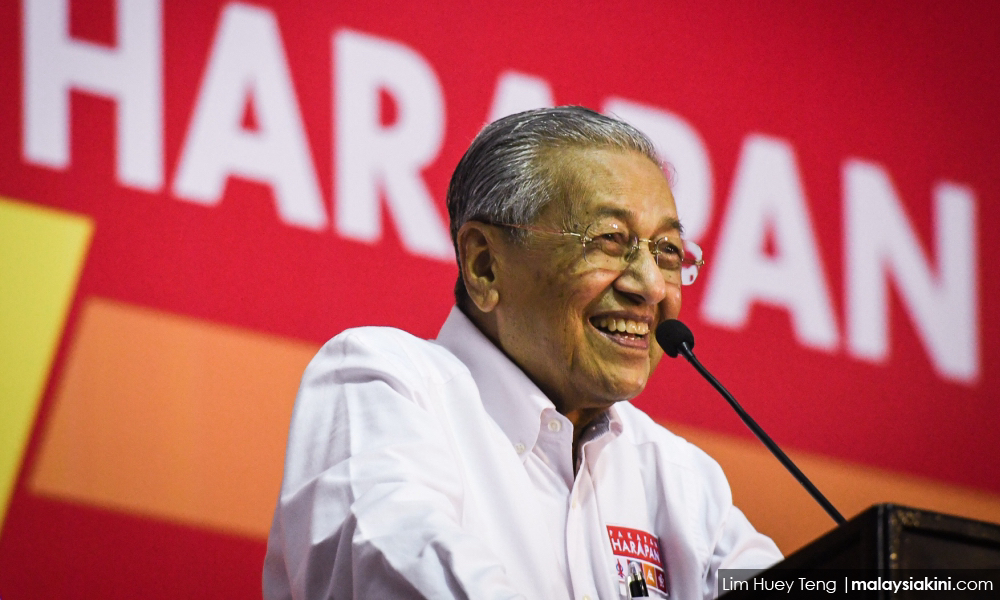
Mahathir himself was not everyone's choice of prime minister. Our democratic system allows for challenges. People need to know what Anwar stands for. The time for equivocation has ended.
The latest video drama shows how important it is for the Harapan leaders to get their act together.
Internal conspiracies will be exploited by members of the 'deep state' – a term used by a minister to describe the convergence of various groups and interests who are opposed to the Harapan government.
Equality between coalition partners and disparate objectives
There was some understanding between the coalition partners as to their equal status within the coalition, no matter what their individual strength was.
Bersatu has great authority within the coalition because Mahathir is prime minister and because of the understanding on equality. Bersatu is a race-based party and appears to be an Umno clone or look-alike.
Many believe that Mahathir's's only problem with Umno was corruption and Najib Abdul Razak.
The defeat of Umno in the 14th general election and the arrest and prosecution of Najib (photo) was sufficient for Mahathir. Good honest government would solve all other problems.
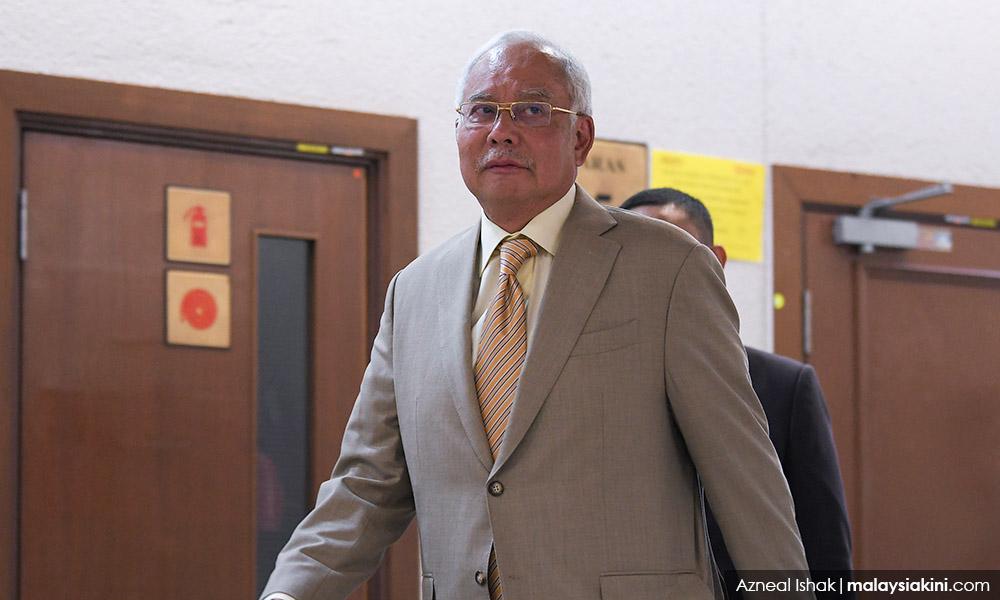
Mahathir wanted Umno crossovers to bolster Bersatu's strength and to obtain for Harapan a two-thirds majority within Parliament. There was resistance within Harapan to such a move and an outcry from many Harapan supporters.
Amanah was a PAS clone or look-alike. Are their objectives similar to PAS, as articulated by its president Abdul Hadi Awang? Are they also pushing for the implementation of hudud and for setting up of an Islamic state?
In their vision would democracy and our fundamental freedoms survive? Amanah, like PAS, must accept our Federal Constitution. They must accept its scheme and structure.
Our constitution sets up a democratic state and makes all citizens equal. It does not contemplate or allow the setting up of a religious state and any attempt to do so would be illegal. Likewise, any attempt to alter the rights of non-Muslims would also be illegal. So Hadi's repeated statements that non-Muslims can never be equal to Muslims is wrong in law.
DAP politics, when in opposition, was well-known. Are they still pushing for their Malaysian Malaysia and the termination of the New Economic Policy (NEP)? Certainly, they want a more racially inclusive government. Their supporters expect that.
Without some re-branding and clarification of DAP's vision for the country, Malays will continue to be wary of them. And PKR's initial raison d'etre was obtaining justice for Anwar.
Now they appear to be split into factions with Azmin on one side and Rafizi on the other.
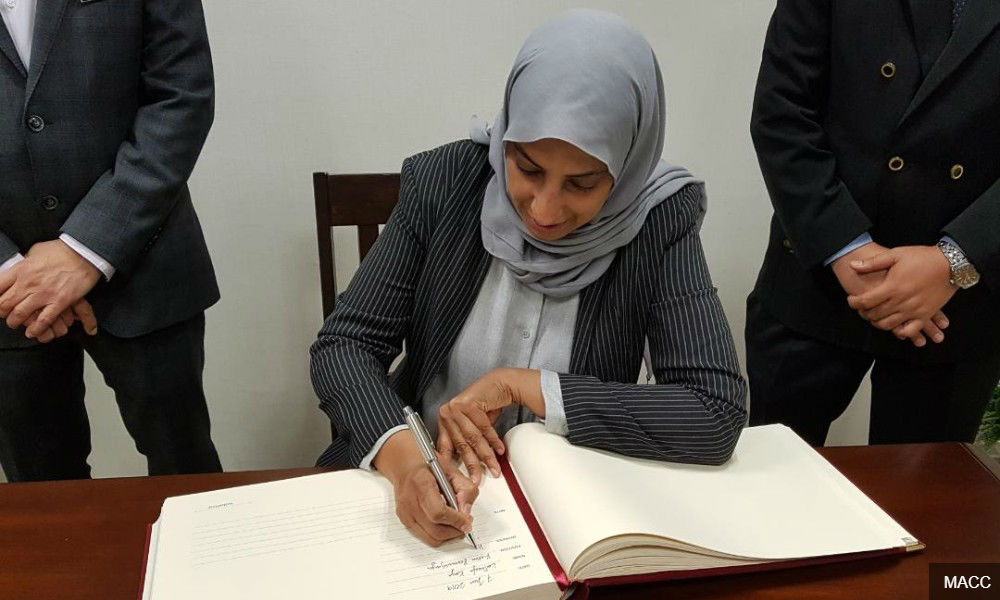
It appears to some observers that Harapan is pulling in many directions. As a result, they appear to be standing still. The unilateral decision on the appointment of Latheefa (photo) appears to have been made because of the impatience of Mahathir to move on.
Latheefa herself appears to be a popular choice. But the unhappiness with the process says something about unhappiness within the coalition.
Absence of a common vision is the problem
There is a need for a common vision that all coalition members can subscribe to. Is that possible given their differing objectives? How is that vision to be framed?
The fact that the majority Malay support at GE14 went to PAS and Umno, and not to Harapan, is also a reason for division within Harapan.
Opposition to Harapan and Harapan policies could be found everywhere, including the civil service and the police force. The challenges were many. There was a reason to proceed cautiously.
The majority of Malays have to be convinced that Harapan policies would not undermine or threaten Malay advances or the efforts to ensure reasonable Malay participation in the life and affairs of the nation, including sharing in the wealth and opportunities of the nation.
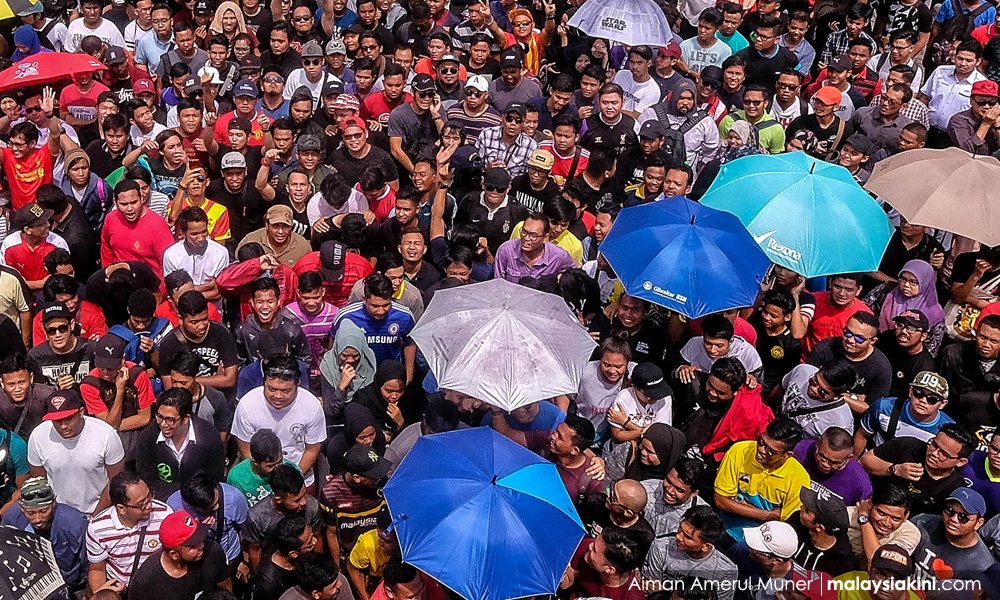
Underlying everything is Malays' anxiety about their ability to compete with the non-Malays. Or at least with the Chinese.
Do Malays have cause to worry? Is our constitution and our demography not good enough to reassure them? I raise questions in earlier articles as to the challenges posed by our multiracial character and to the equality provisions of the constitution.
Malaysia will never revert to the pre-1971 type of system where every man looked after himself. All accept that no community should be left behind. We love this country. We enjoy our diversity. All contributed to the building of the nation. And we accept policies that ensure all communities obtain a fair share of opportunities for education, employment, business and advancement generally.
Most of all, we accept that poverty must be eradicated. As there are more poor Malay households relative to the Chinese and Indians, more Malays would be helped.
The Malays are a majority in the country. Malay numbers grow, while Chinese and Indian numbers shrink. And Malays are in charge of everything. They are in control. So, whatever is done must receive the approval of the majority of Malays.
PAS-type policies will never be accepted by the non-Muslims and moderate Malays. It should be rejected by Harapan. This is where Amanah needs to examine its policies.
What then is the disagreement?
Majoritarianism - the majority takes all
PAS and Umno have come together in a much-celebrated partnership – not yet a marriage. For them everything is about race and religion. From their point of view, as Malays and Muslims are the majority, they can and should have more of everything.
As Perkasa chief Ibrahim Ali once said, democracy is about rule by the majority. And that means the majority must have more rights than the minority! To some extent, this is an argument to defend past and existing policies that promoted or advanced a ketuanan concept or policy. It was never tenable or possible to continue with such policies forever.
That kind of thinking leaves no room for argument. It is unconstitutional. It will never be accepted by non-Malays and by many Malays.
There is, however, fear among some Malays that equality would mean meritocracy and that would result in Malays being left behind. If the belief is that Malays will never ever be able to compete with the Chinese, then that fear is valid.
However, that belief must be founded on some scientific basis that posits that Chinese are inherently superior to the Malays. Is that belief supported by science?
Of course not! We should not waste time on such nonsense. Malays have more than demonstrated their ability to compete on all fronts. But there is a need to address that insecurity.
The Federal Constitution
The vision for our country actually lies in the Federal Constitution. It sets up the democratic structure of our government and establishes the rights of our citizens.
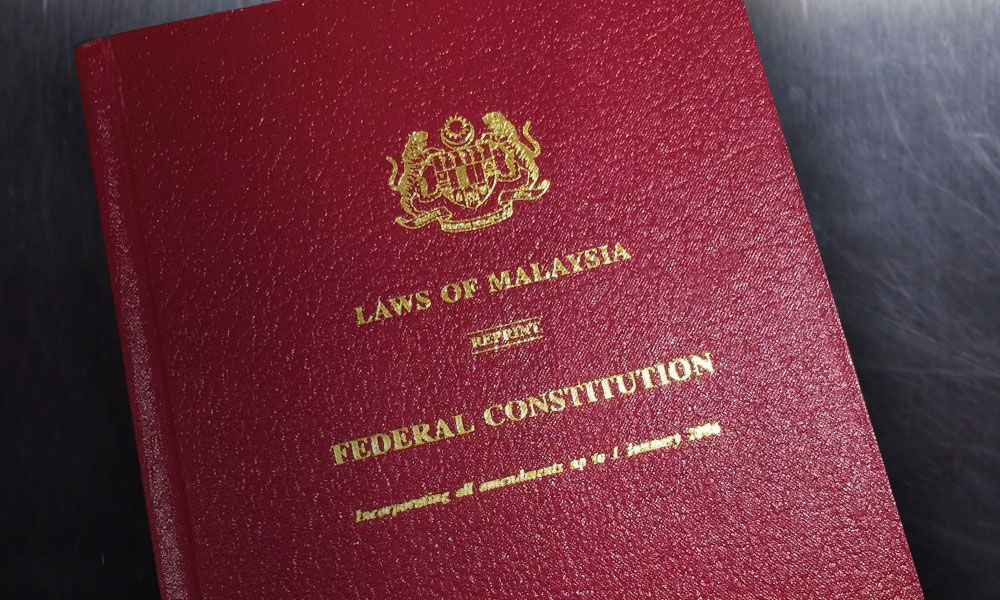
Article 3 establishes the position of Islam and Article 153 provides some safeguards for the Malays.
Do we not value our democracy and our constitutional structure and scheme? Do we not acknowledge that equality is a fundamental guarantee and that members of a minority community enjoy the same rights as members of the majority community subject to Articles 3 and 153 of the constitution?
Non-Malays want a more inclusive government and they want shared facilities and programmes. They want the poor of all communities lifted out of their poverty. Why should that be a problem?
The opposition ruled Penang and Selangor for two terms before GE14. The government was generally perceived to be better than the previous BN government.
And Malays did not experience any loss or diminution in their position. In fact, their position improved. They received more benefits and the poor of all races were looked after. And that was without federal government support. The situation should be much better now as they have federal government support.
Mahathir recently outlined his vision for shared prosperity. That sounds good as a general statement, but the absence of detail is the problem. But the general statement contemplates a vision we can all subscribe to. Just how is that vision to be achieved?
Education is the key
An answer to Malay insecurity lies in education. Good education is the ultimate equaliser. And all our leaders know it. Just as they know that English language proficiency is an asset, especially in the private sector where virtually all businesses are conducted in English.
Education should be of the highest standard. Early education should be rigorous. Early education lays the foundation for higher level study. If early education is compromised, later studies and standards are affected.
English language proficiency is a must. All Malaysians must be at least bilingual. Better still if they know more languages.
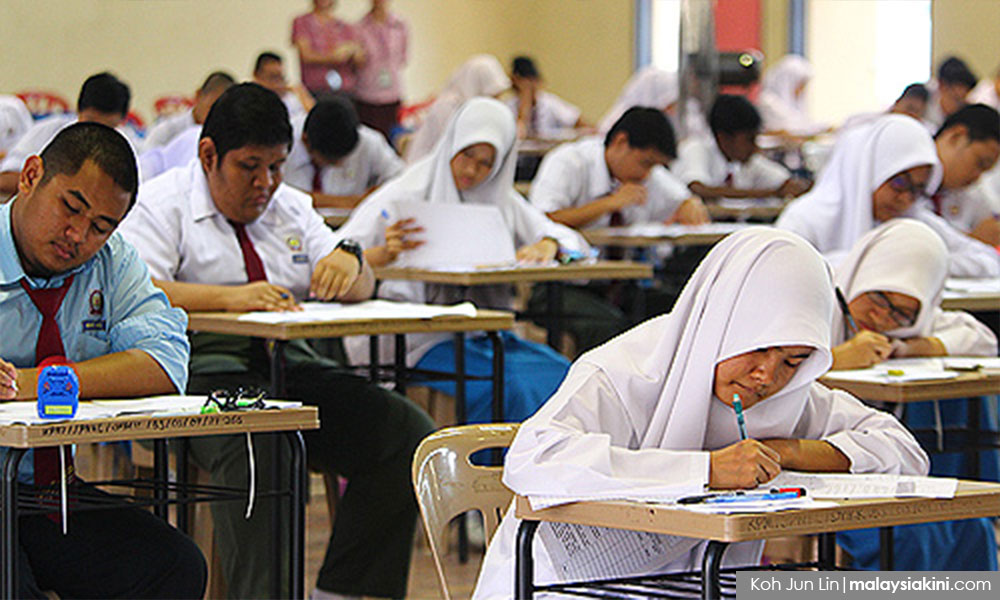
English language gives access to research in the English language, and to the vast storehouses of knowledge through the internet. It also enables online study through the thousands of universities and colleges from every corner of the globe.
Our schools, colleges, polyclinics and universities should prepare our young for the workplace. They should make them productive. That would ensure them good well-paying jobs.
Schools should also teach survival skills like budgeting, saving and investing. And elements of business like accounts and business management. It is only through good education that we will bring out the best in our people.
It is only then that the gap that the Malays fear of income and wealth between them and the Chinese will be narrowed. For some reason, the Education Ministry appears to be paralysed. We hear nothing of the root and branch reform we urgently need.
A strong economy
Then there is the economy. Our policies must encourage investment and enterprise. We must free ourselves of the middle-income trap.
To do that, we must develop the talent of all our people. We must also source talent from overseas. We take in millions of foreign workers with low-level skills but do little to bring in foreign talent that can help our economy to grow.

Worse still, we allow politicians to use rhetoric and pursue policies that scare our own people away and many have left as a consequence.
The fact that Chinese are business-minded is not a bad thing. Our economy is built on private enterprise. And we want more investments, both domestic and foreign.
Of course, the government would want more Malays to go into business. There should be a well-thought-out strategy to achieve that result. Incorporate business studies in the school curriculum. Set up top-flight business schools. Provide incentives for multiracial business ventures.
Bringing our people together
We already have a new government. It is a more inclusive government. Non-Malay leaders have the opportunity of making a contribution. Changes are being made to strengthen democratic government, eliminate corruption, reduce the cost of living, improve education and strengthen the economy.
Reforms are slower than expected but they are taking place. Biro Tata Negara-type programmes have been terminated. And efforts are being made to make government schools more hospitable to non-Malays.
Our people should enjoy the diversity of races, cultures and religions. They should not see each other with suspicion and distrust. Having more non-Malays as teachers and in the civil service, police and armed forces would help.
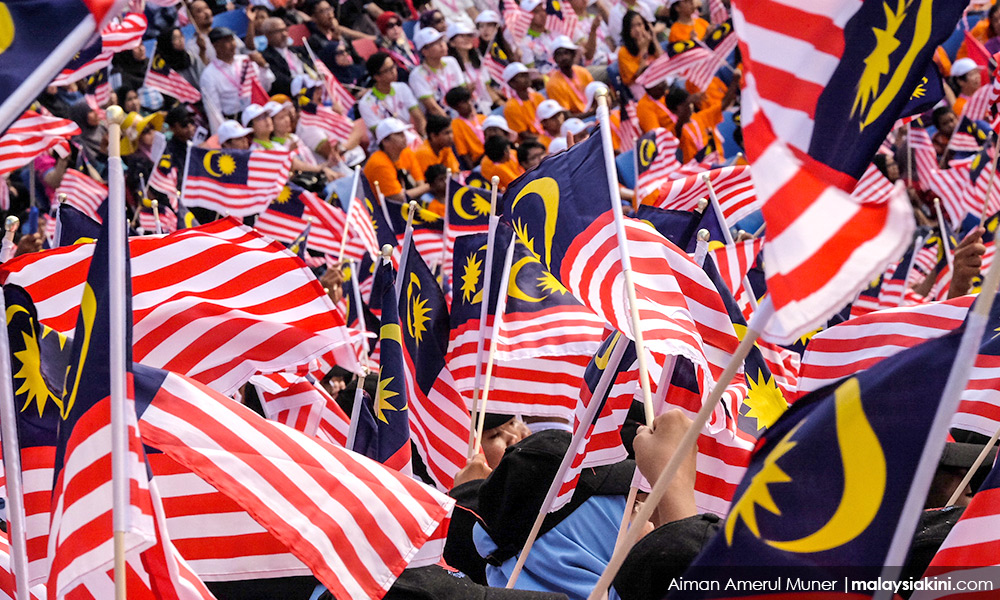
The vision is a simple one. Shared prosperity is the answer. Education is the pathway.
Eliminate corruption and encourage enterprise. Bring the people together on every front – at school, in neighbourhoods, at work and business and at play. The government should be just and fair. And everything will fall into place.
Our Malaysian identity must transcend race. Our leaders must look after all especially the poor. The talents of all must be harnessed for the benefit of all.
That should be the vision of Harapan.
DAVID DASS is a lawyer and Malaysiakini subscriber/commenter.
The views expressed here are those of the author/contributor and do not necessarily represent the views of Malaysiakini.

